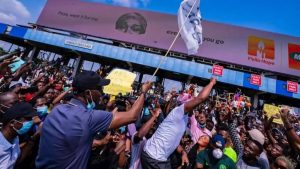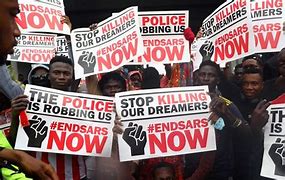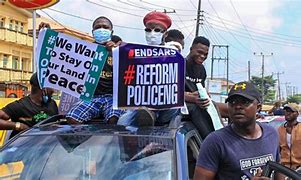- Have any questions?
- [email protected]
#MatterArising: The Lagos State Government’s Whitepaper on the JPI Report

The Anambra Governorship Election: Matters Arising
10 November 2021
#TransparencyWatch: Nigeria’s subsidy removal quagmire and the imperative for sustainable policies
3 December 2021It’s about two days since the Lagos State Government released a Whitepaper on the report of the Judicial Panel Of Inquiry On Restitution For Victims Of SARS Related Abuses and investigation of the incident at the Lekki Toll Gate on 20th October, 2020.
Prior to the release of the White Paper, the leaked Judicial Panel report had generated several reactions, both from those whose opinion regarding the Lekki Shootings was reinforced by the report and those whose opinion remains otherwise, given their beliefs on the number of deaths and casualties recorded on October 20, 2020.

With the increasing polarisation of opinions orchestrated by the increased use of social media therefore, the likelihood of both sides arriving at a mid-point as it relates to casualties recorded in the October 20, 2020 incident is minimal.
Notwithstanding, the government remains saddled with the duty of accountability and responsiveness to its citizens. This is even more needed now to build broken trust between the government and its citizens, particularly the youth who were at the centre of the EndSARS protest.
According to the 24-paged Whitepaper, the Lagos government accepted only 11 of the 32 recommendations by the panel, 6 were modified for acceptance and 14 will be forwarded to the Federal government for consideration. The state government however, rejected one recommendation it was entirely not entirely convinced by; as it cited certain inconsistencies.
“The inconsistencies and contradictions in the panel’s report concerning deaths at Lekki Tollgate rendered their findings and conclusions totally unreliable and therefore unacceptable,” the whitepaper stated.
This development further reveals that the controversy which trailed the event of October 20, particularly on the number of persons killed during the shootings, will continue to linger.

Being that as it may, swift action on the recommendations accepted, modified and forwarded will go a long way in building the needed harmony between the government and the citizens to a reasonable extent. Importantly though, the federal government has much of the responsibilities, as the duty of sanctioning erring officers of the Nigerian Army and Police – which is the crux of the matter and subject of key recommendations – is beyond the state government’s jurisdiction.
Furthermore, prior to a final ban issued in 2020 for the dissolution of the Special Anti-Robbery Squad (SARS), the then Inspector-General of Police had in December 2017, June 2018, January 2019 and in February 2020, made announcements of either a ban, disbandment or abolishment of SARS and an immediate restructuring of the rogue unit. Perhaps, if this was taken beyond mere audio proclamation, especially as it relates to action on the widely-publicised #5for5 Demands of the Protesters, there wouldn’t be any argument on the number of lives lost on October 20, 2020.
Hence, the government needs to focus less on any Peace Walk as a way of showing concern or establishing harmony with her citizens, it only needs swift actions and responsiveness to citizens’ plights.
More so, while the Lagos government appears to be showing commitment to resolving the issues, all eyes are on the federal government to make a similar move in reconciling with the aggrieved citizens. And with several issues bedeviling the nation; from banditry to drug abuse and other attendant criminalities, the federal government needs to adopt a proactive approach to issues before they appear insurmountable.

